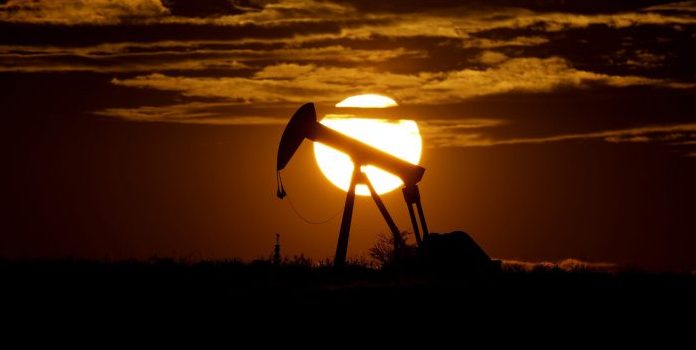(Headline USA) In another example highlighting the importance of a country’s ability to achieve energy independence, where the U.S. was headed under for President Donald Trump, OPEC and allied oil-producing countries decided Thursday to gradually increase the flows they send to the world, even as Europe’s plan to sanction Russian oil threatens to yank millions of barrels off a global market already thirsty for crude.
The cautious approach from the OPEC+ alliance—which includes non-member Russia—will exacerbate a global energy crunch, with prices expected to rise further for oil and the gasoline, diesel and aviation fuel made from it. Those higher prices will worsen global inflation, eating away at people’s ability to spend money that would otherwise support the economic recovery.
At an online meeting, OPEC+ stuck with its road map to gradually open the oil taps, agreeing to add 432,000 barrels per day in June. The plan is to make those regular increases to restore cuts made in 2020 during the worst of the pandemic recession.
Oil prices have risen—more than 40% this year—as the boost in production remains smaller than what the U.S. and other oil-consuming countries are pressing for to ease high prices at the pump.
Bigger surges in oil prices have been held back by COVID-19 lockdowns in China cutting demand and the U.S. and other member countries of the International Energy Agency releasing oil from strategic reserves.
Still, analysts from Rystad Energy foresee the global market potentially losing up to 2 million barrels within six months if the 27 European Union countries approve a proposal to sanction Russian oil. Moscow is expected to see production fall after losing its biggest oil customer—Europe.
OPEC has made it clear to European officials that the oil cartel is not going to increase production to compensate for lost Russian oil. Some OPEC members already can’t meet their oil production quotas.
Russia is the world’s largest oil exporter with some 12% of global supply, and fears its oil and natural gas could be cut off have kept energy prices high. Before the invasion of Ukraine, Russian sent around 3.8 million barrels of oil per day to the European Union, where refineries turn it into gasoline and diesel fuel.
If the EU carries through on its plans to phase out crude imports in six months, Russia could try to sell those barrels to countries in Asia that are not participating in the boycott. But it might not be able to find customers for all of the oil displaced from Europe, even at tempting knockdown prices.
For one reason, there is limited pipeline and rail capacity to Asia. While some oil could be redirected by sea, that will depend on the availability of oil tankers willing to deal with Russian crude, given the risk of sanctions. Banks and companies that insure tanker fleets may be reluctant to facilitate the sale of Russian oil.
“Higher prices could be around the corner,” said Bjornar Tonhaugen, head of oil markets research at Rystad Energy. “The oil market has not fully priced in the potential of an EU oil embargo, so higher crude prices are to be expected in the summer months if it’s voted into law.”
U.S. oil prices rose Thursday, up 1.2% after the meeting to $109.01 per barrel, or 43% higher since the start of the year. International benchmark Brent crude rose 1.7%, to $111.81 per barrel.
The price of crude oil accounts for about 60% of the price at the pump in the United States. Average U.S. gasoline prices stood at $4.19 per gallon Wednesday, up $1.29 from a year ago.
Diesel for trucks and farm equipment has risen even more over a year ago, by $2.34, to $5.43 per gallon.
Drivers in Europe, where taxes make up a larger proportion of the price at the pump, are paying more, too. Gasoline prices are averaging 1.95 euros per liter in Germany, or the equivalent of $7.77 per gallon, while diesel has been at 2.02 euros per liter, or $8.05 per gallon.
Adapted from reporting by the Associated Press

